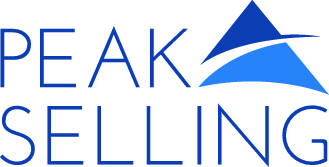Prospecting & The Power of One: The High Performing Salesperson
Posted on 06/20/2008 in Prospecting and Business Development In today’s business environment, most organizations now have to deal with factors such as market maturity, customer consolidation and increasing global competition. These industry challenges make prospecting for new business even more difficult then ever, and all the more necessary for growth. Most sales managers claim that their sales people spend too much of their time in their comfort zone and not enough time prospecting.
Just take a moment to think about the power and the results of one great inventor or one successful businessperson, one charismatic leader, or even the power of one amazing idea. People like Thomas Edison, Henry Ford, Amelia Earhart, Martin Luther King, and Bill Gates come to mind.
The Power of One Great Sales Person
The results generated by one single high performing sales person can be remarkable. Managers report that their top performing salespeople are not only highly skilled at their jobs, but they generate a disproportionate amount of sales results, such as profit growth and number of new accounts. Don’t underestimate the power of one great salesperson! Now how can you get your entire sales team to do this?
The Power of One Great Coach
When surveyed, most sales managers cite that it is outside the comfort zone of their sales people to prospect for new business. As such, a sales manager must coach and develop the prospecting capabilities of each sales person. Just because a sales person does a great job at account management, does not necessarily mean that this same person is comfortable and competent at business development.
Research demonstrates that frequent coaching by a manager correlates to a significant increase in the skill and strategy level applied by a sales person. Managers need to coach their salespeople in two ways. First, they need to help the salesperson develop a strategy and plan which includes clear business goals and targets. Second, they need to ensure that their salespeople have the necessary capabilities and skills needed for success.
What Are The Most Common Mistakes Made by Sales Professionals?
Sales people often make the same common mistakes when prospecting. First, they don’t spend nearly enough time on prospecting for new business. And when they do put forth the time and effort, they tend to go after the wrong types of prospects. Sales people need to know how to identify and gain access to the best prospects.
Not All Prospects are Created Equally
A common mistake is to go after the wrong prospect. Not only will this waste time and money, but if you do succeed in making a sale you will likely regret it.
- The prospect has a genuine need or interest for your service or product
- The potential size of the sale justifies your selling effort and resources
- The timing is right (in terms of the "decision process" and deadline for decision)
- Your contact(s) have the authority to buy
- The money or funding is available in the budget
- The prospect values what you provide and is not just interested in price
Another mistake is to rely on non-productive and outdated prospecting methods. Sales people need to understand and become proficient at creative and more productive ways to prospect, rather then relying on conventional methods such as cold calling over the telephone and just stopping in (what some firms call "smokestacking”).
The best sales professionals use creative methods to prospect, such as:
- Stay active at industry associations (join a committee, give a speech, network, etc.
- Ask for referrals from current customers and others
- Use the Internet to research and identify the best sales opportunities
- Send targeted mailings and emails
- Conduct informational seminars (not a sales pitch, but an educational event)
Preparation for prospecting sales calls also differentiates the best sales professionals. Average sales people ‘wing it’ whereas the best sales people prepare and practice what they will say, notably their "elevator speech”. Sales people who can describe in two minutes or less the value that their company, products and services can offer a potential customer are more likely to gain access and advance the sale. Conversely, those who have not formulated and practiced their value statements and "elevator speeches” are not likely to get a second appointment.
Similarly, since you may only get one chance to speak with a new prospective client, it is essential to prepare and ask the right questions in order to qualify the sales opportunity. The best sales professionals ask the best questions. It sounds like common sense, but it is not common practice.
Please visit our Sales Prospecting and Business Development workshop page for more information.
